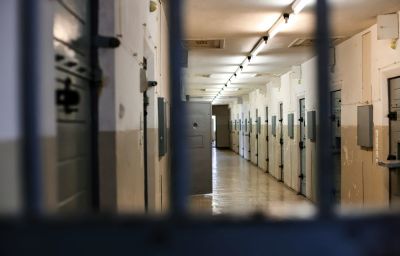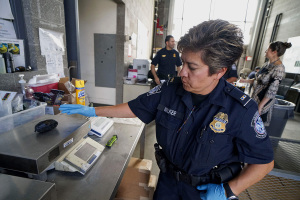What does society really hope to gain from our prison system?

In 2017, April was officially declared “Second Chance Month,” a time set aside for criminal justice reform advocates and policymakers to rethink approaches and best practices surrounding mass incarceration and the criminal justice system. Most practically, this month begs the question: What does society really hope to gain from our prison system?
As we turn our attention toward the 1.2 million incarcerated men and women in this country, I am reminded of the 200,000 individuals currently serving life sentences, many of whom are being given a second chance in an unconventional way, men like Chris Bernaiche.
Currently, Chris Bernaiche is serving two life sentences for a double homicide he committed more than two decades ago. However, Chris no longer recognizes the man guilty of the crimes he once committed. In the early days of his prison stint, Chris describes himself as “angry and violent,” resulting in two years of solitary confinement. But after embracing a new-found faith in Christ, Chris transformed his life through education by signing up to take college classes while serving time in prison.
After a transformative few years investing in his own education, Chris now serves as an academic tutor, mentors men enrolled in his prison’s auto mechanic shop, plays the guitar at the prison’s chapel service, and, this May, will receive his bachelor’s degree with honors through the Calvin Prison Initiative.
“I don’t even recognize the guy who committed those crimes more than 20 years ago,” Chris shared. “I’m not that guy anymore.”
Just as serving time in prison can be passed down from generation to generation, so can education levels and even faith in God. A few weeks ago, I spoke with “Jay,” one of the lifers in our program who had just hung up from a phone call with his 10-year-old nephew. As a part of their conversation, Jay was encouraging his nephew to keep his grades up and one day pursue college. Amidst Jay’s family history of violence and incarceration, Jay believes his example of transformation will serve as an inspiration to his young nephew and beyond.
“Why educate a lifer?” I’m periodically asked. Because men like Jay and Chris remind me that every life has a ripple effect. Through our program, which is taught from a Christian perspective, the men see themselves and the world through a different lens than perhaps they learned as a child or young person. Their education often leads to newfound gifts and abilities. And, most often, I hear tales of these men seeking forgiveness and rebuilding relationships with people outside the prison walls.
Through the power of education, Jay, Chris, and hundreds of others are being given a second chance at a new identity. When the men sit down at their desks at the start of their five-year educational commitment to obtain a bachelor’s degree in prison, it’s not unusual for them to walk in feeling hopeless.
But as the weeks and months unfold, I notice a physical transformation in these men. They begin to sit up straighter at their desks, their confidence in their intellectual abilities readjusts, and their faces change from sullen to cheerful. It isn’t unusual to begin hearing laughter in the classroom. In the end, it’s more than a diploma we are handing them at graduation. The hope I see on the faces of the men I educate is palpable.
Finally, most of all, the men we are educating — whether serving 10 years or lifelong, often come away from their classes exuding a passion for helping others. Lifers mentor the guys getting out in a couple of months. The students graduating with their bachelor’s degrees discover a newfound purpose as agents of renewal inside their prison walls and beyond.
As Christians, I hope we can reexamine what our society is trying to accomplish with mass incarceration. May we remember the humanity of every incarcerated individual, whether they are in prison for a week or the rest of their lives, providing hope for them – and ultimately their communities – through the power of education. With a new identity, they along with hundreds of other graduates from the Calvin Prison Initiative, are now creating lasting impact.
Dr. Todd Cioffi is the director of the Calvin Prison Initiative in Grand Rapids, Michigan.



























